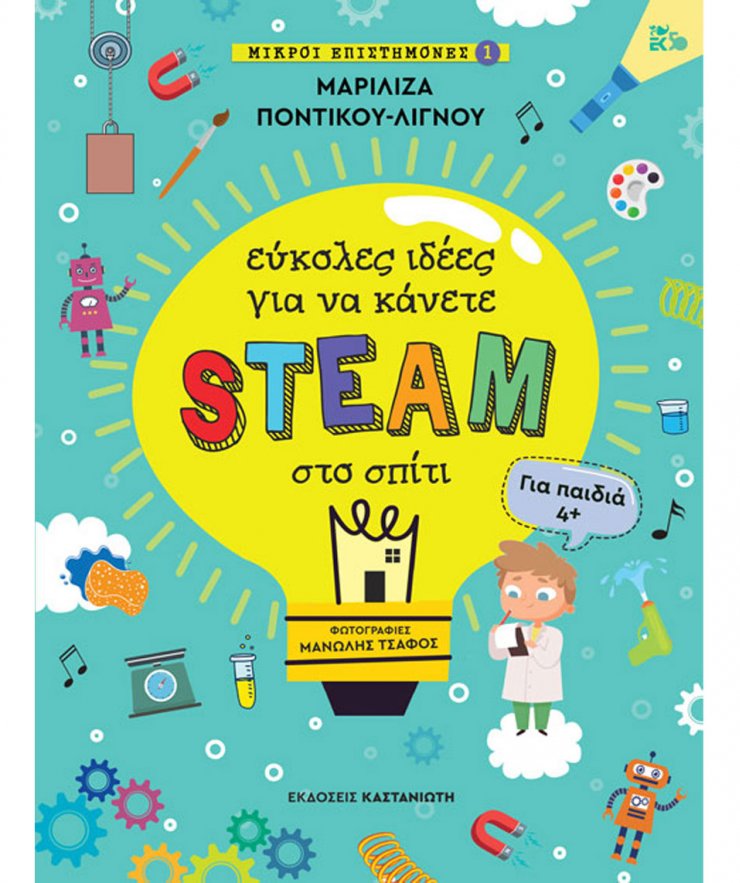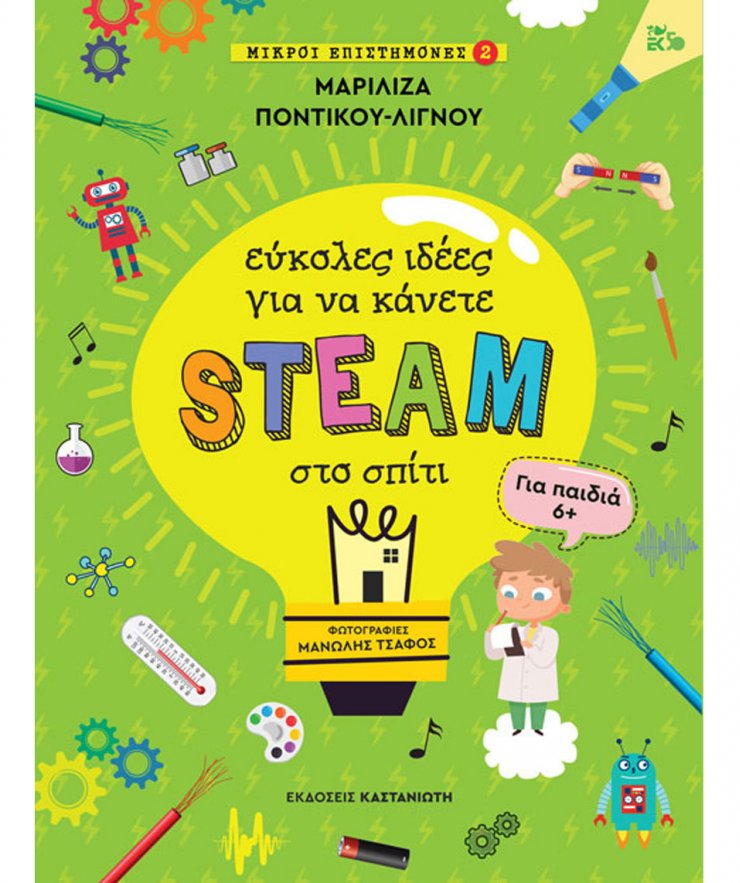November 8th is a day dedicated and globally established in STEM for children. The term STEM is getting popular by the day, as it is an interesting topic that is liked by many children.
To celebrate the occasion, we called STEM specialist Mariliza Pontikou-Lignou to answer some frequently asked questions so that we get to know a little better the importance of STEM. And why not try experimenting with it. Mariza has also created two educational books of activities "Mikroi Epistimones 1" and "Mikroi Epistimones 2" which you can find in the wonder room!
About Mariliza

Mariliza studied at the Department of Preschool Education of Ioannina and then at the Institute of Education, UCL, where she specialized in Educational Technology. She has been involved in a study on the integration of technology in preschool.
Returning to Greece, she worked as a preschool teacher and then devoted herself to the application of the STEAM method through teaching, but also through scientific articles and presentations. She is also a member of the Hellenic Scientific Society STEM.
All you can learn
Many people know S.T.E.M., how would you explain it to someone who does not know it?
I often find that there is a confusion about what S.T.E.M. I'm not sure if "many people" know what they are. If I were to try to describe it in simple words to someone, then I would say "free children that are open to think, to try and to conclude". There is an assumption that STEM is robotics. But in reality, it is much more.
STEM (Science, Technology, Engineering, Mathematics) started in America when there was a decline in student performance in those subjects. So, the teachers of these four courses decided to collaborate by creating an experiential workshop in which they would be asked to use all four of these areas for an activity. This laboratory achieved its goal and it was not long before STEM reached the primary school and the kindergarten. With the difference that the young children lacked the artistic part. Therefore, STEM became STEAM. "A" from Arts was added.
This is what I do with my students.
Is there an age limit from which contact with STEAM can begin?
S.T.E.A.M. is a way of thinking. There is no minimum or maximum age for someone to use it in their daily life. From the day a child is born they can be initiated in this way of STEAM.
What skills do children develop?
With STEAM, children cultivate the most important and valuable skills that they will need as adults, wanting to claim a high position in the labor market.
These skills are varied and multidimensional. Among them are the critical thinking they acquire, the ability to solve problems that arise, teamwork, technological literacy, communication skills, creativity and imagination, but also the management of failure. We teach children to try and not give up.
Do you think that STEAM is covered by the school?
I notice that more and more teachers and parents are interested in learning information and ideas about what it is and how they can apply it in the classroom or at home. The constant question is whether they should buy expensive equipment. The answer is no. To do STEAM either at home or at school and to cultivate in our children the mentioned skills, it is not necessary to buy the latest type of robots. We can do STEAM with materials from nature, kitchen, home or materials that we will easily find in the market. And of course many ideas can be discovered in the books "Mikroi Epistimones 1" and "Mikroi Epistimones 2".
What tips would you give to parents who want to include STEAM in the game?
Parents, you should let your child ask questions and try to promote open-ended questions. Instruct your child to observe and try, not to accept unfiltered what is happening around them. Encourage your child to make assumptions, experiment and draw conclusions. But most importantly, let them make mistakes and observe them trying to correct or improve them.
Celebrate World Day with your children and give them the opportunity to develop the skills that will help them develop. Get started easily today with Little Scientists and find even more STEAM products here.
tag:Wonder Wall




